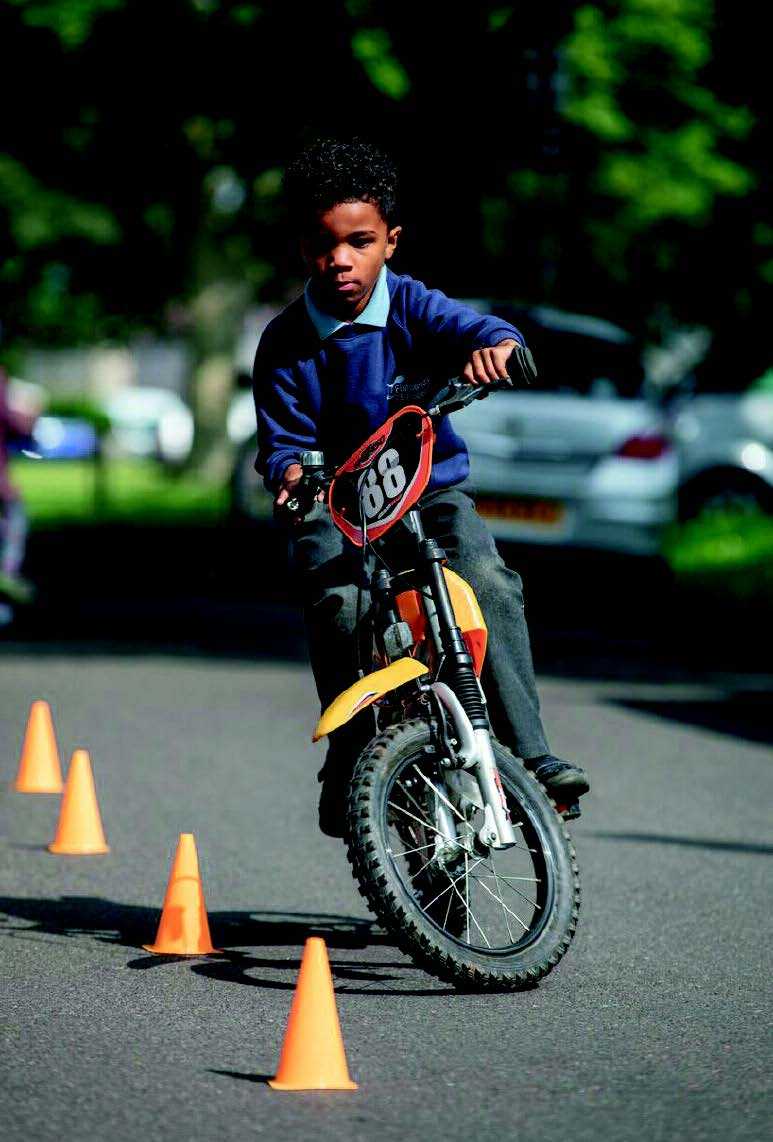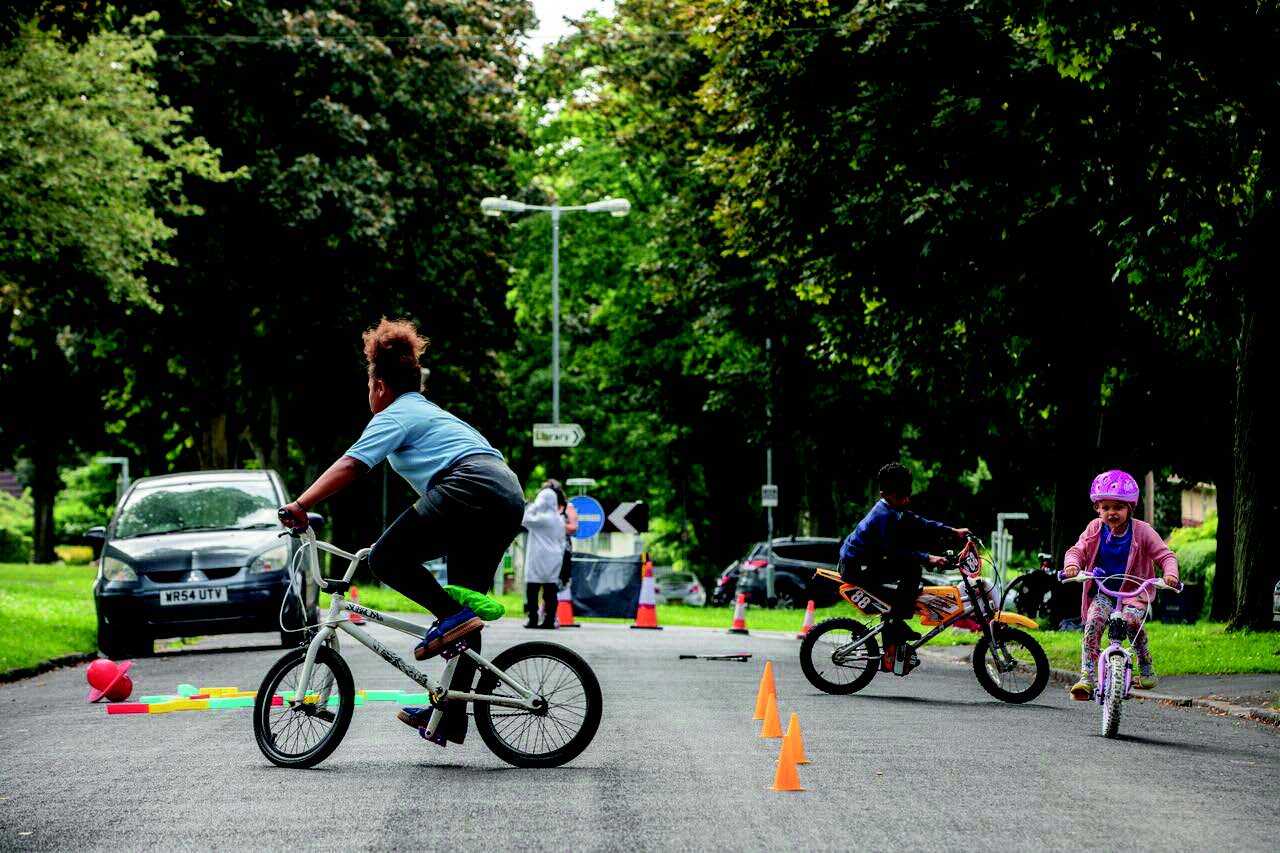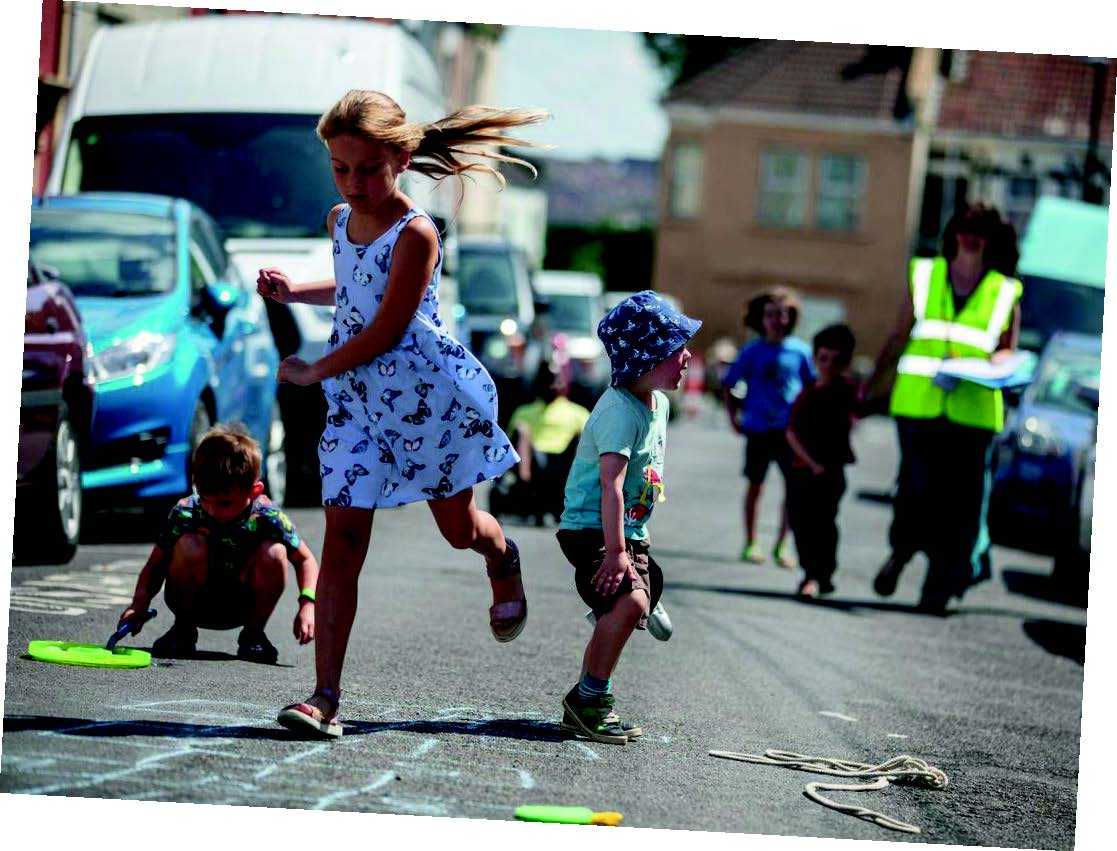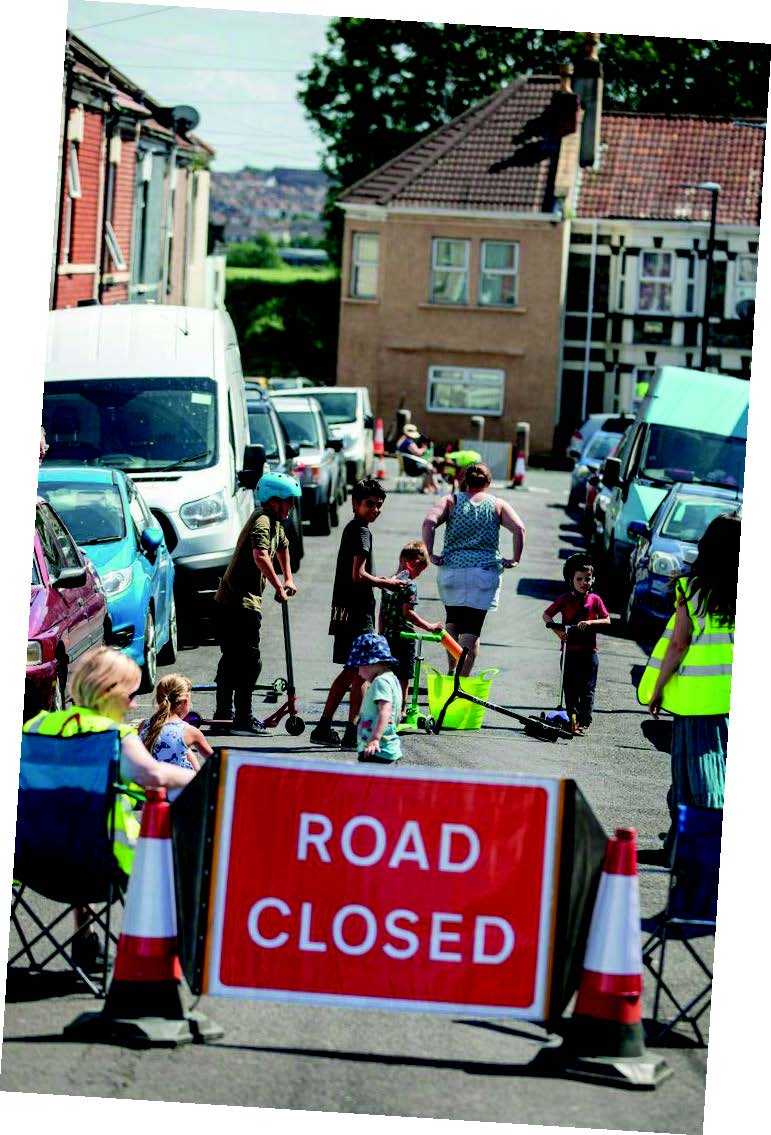
Following the Children’s Commissioner recent report into play and physical activity, we talk to Alice Ferguson, the co-founder of Playing Out, about the UK’s growing street play movement.
Q. The Children's Commissioner for England has called for play and physical activity to be made a national priority. How will this impact outdoor play in England?
The Children's Commissioner's report makes several really important points. Firstly, that children naturally want to be outdoors, active and playing with friends. Secondly, that it is the changing physical and social conditions around them (busy lives, busy roads) that get in the way of this, not screens or their own laziness. And thirdly, that we all need to work together to change things. The impact of the report will very much depend on what happens next. We are meeting with the Children’s Commissioner to talk about this and in particular, what can be done at a policy level to address the current barriers to children playing out.
Q. Can street play help reduce physical inactivity among children?
This movement has shown that the solution to children’s inactivity is incredibly simple – they just need to be given the time, space and opportunity to play outside freely.
Research by the University of Bristol using accelerometers and GPS found that children were up to five times more physically active during street play than on a normal day after school. There are no organised, adult-supervised games or activity. No glossy cartoon-illustrated leaflets telling children how physical activity can be fun. No rewards other than the enjoyment of having freedom to use the space outside their own front door and choose what they want to do. Just easy access to a safe space, other children and permission to play. So yes, as well as providing a whole host of other benefits, there is enormous potential for street play to meet children’s need for physical activity.
But in order to realise this potential we need public health and wider government policy that addresses the barriers to street play being a normal, everyday option for most children. In particular, public health policy (and funding) that is based on a better understanding of children’s natural urge to play and be active (i.e. they don’t need to be “encouraged”, just enabled), and wider government policy that addresses the barriers to this. In particular, we need our streets and neighbourhoods to be more child-friendly than car-friendly, which will take huge political will.
Q. Why is there growing appetite for more outdoor/street play?
There is a huge and growing appetite to increase children’s opportunities for outdoor play, both from parents and policy-makers. Parents of my generation in particular are extremely concerned about the way things have changed since their own childhood and the damage this is doing to their children.
In general, individuals feel powerless to change things, but the temporary play street model gives them a do-able, immediate way to give their children a taste of playing out on a regular basis. It is also a way of starting to change things in a deeper, longer-term way. Through building a sense of community and re-framing the street as a playable, shared space, this resident-led model actually re-builds the conditions needed to make street play a normal part of children’s lives again.
Q. How are you working with the DfT to make it easier for councils to put street play policies in place?
We recently met with Jesse Norman MP, the Transport Minister responsible for walking and cycling, to ask for his support in making it easier for local authorities to adopt a street play policy. Many councils have already done so (57 so far and counting), but there is a lot of “wheel reinvention”and some councils are still reluctant, even where residents have been strongly campaigning for it. The minister was very supportive of the idea and the next step is working the DfT to produce some kind of guidance for councils to provide them with the confidence to support and promote street play.
Q. How do you feel about what you have achieved in street play over the last decade?
I feel a mix of amazement and frustration! On one hand, it’s wonderful hat the Playing Out model has now spread tomore than 800 streets across theUK and is being taken up all over the world. The fact that so many people are willing to put time and energy into making this happen just shows the widespread desire for change.





Many thousands of children and adults have directly benefitted as a result, national media coverage has raised awareness of the issues and the movement is growing. I feel really proud of all this.
But there is also an underlying frustration. Things are not changing nearly fast enough, the government is mostly ignoring the issue and in the meantime, a whole generation (or possibly two) of children are growing up without the vastly beneficial experience of having the freedom to play out where they live. This makes me sad and angry. I just hope that the Children’s Commissioner’s report is a step towards the radical political decisions needed to restore children’s right to play out.